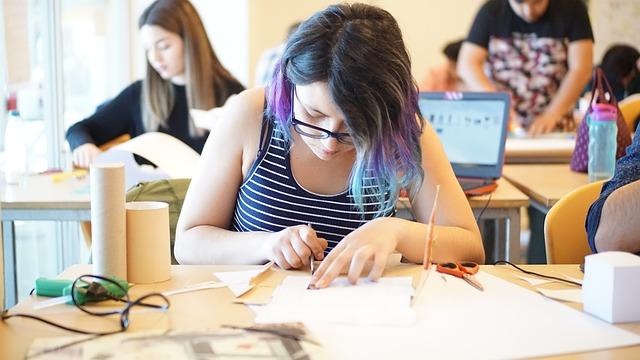In a world that grows increasingly interconnected, the allure of distant lands and diverse cultures beckons travelers from every corner of the globe. With passports in hand and curiosity as their compass, tourists embark on journeys that promise adventure, enlightenment, and a temporary escape from the familiar. Yet, amid the vibrant tapestry of cultural exchanges, there lies a delicate thread of responsibility—one that poses the question: Should tourists be held accountable for cultural missteps? As we delve into this complex dialogue, we explore the nuances of cultural understanding, the consequences of inadvertent faux pas, and the shared responsibilities of both travelers and hosts in fostering a respectful and enriching global community. Join us as we navigate this intricate landscape, where the beauty of cultural diversity meets the challenge of maintaining its integrity.
Understanding Cultural Nuances: A Guide for Travelers
When stepping into a foreign land, travelers often become temporary ambassadors of their own cultures. Yet, they may inadvertently find themselves embroiled in cultural missteps that can sometimes lead to discomfort or even offense. The question arises: should they be held accountable for these blunders? Cultural sensitivity is a crucial aspect of travel, and while many argue that tourists should be given some leeway due to their unfamiliarity, others stress the importance of accountability to foster a more respectful and harmonious global community.
Consider the following points:
- Intent vs. Impact: While a tourist’s intention might be innocent, the impact on the local community can be significant. Acknowledging this gap can lead to more mindful travel experiences.
- Learning Opportunities: Mistakes can serve as valuable learning moments. Tourists can use these experiences to deepen their understanding and appreciation of the host culture.
- Respect and Research: Prior research about cultural norms and practices shows respect and reduces the likelihood of missteps. This effort reflects a commitment to engaging with the culture authentically.
- Local Perspectives: Understanding how locals perceive certain actions can offer insight into the significance of cultural practices, thus fostering mutual respect.
Ultimately, while the burden of perfection should not weigh heavily on tourists, an open-minded and respectful approach to cultural differences can pave the way for enriching experiences for both visitors and hosts alike.
The Impact of Cultural Missteps on Local Communities
Cultural missteps by tourists can have profound effects on local communities, often altering their way of life in unforeseen ways. While many travelers set out with the best intentions, their actions can inadvertently lead to the erosion of local traditions and practices. Respecting local customs is more than a courtesy; it’s a vital component in preserving the cultural integrity of a destination. When visitors neglect to adhere to established norms, it can lead to a host of issues, including the commercialization of sacred sites and the commodification of traditional practices.
Consider the following impacts on local communities:
- Loss of cultural identity: Repeated missteps can dilute the essence of a community’s unique heritage.
- Economic ramifications: Uninformed actions might divert tourism revenue away from local businesses.
- Environmental degradation: Disrespect for local customs often coincides with neglect for natural surroundings.
These consequences underscore the need for greater awareness and responsibility among tourists, ensuring that their presence contributes positively to the cultural landscape they explore.

Educating Tourists: Bridging the Cultural Divide
When tourists traverse the globe, they carry with them not just suitcases but also preconceived notions and cultural baggage. The need to educate tourists on cultural nuances becomes imperative to avoid unintended cultural missteps. This education can be a two-way street, fostering mutual understanding and respect. However, the question remains: should tourists be held accountable for their cultural blunders? Accountability doesn’t necessarily mean punishment; instead, it can be seen as an opportunity for growth and learning. By taking responsibility, tourists can transform potential faux pas into meaningful exchanges that enrich both their experiences and those of the local communities.
- Understanding Local Customs: Prior to their visit, tourists can benefit from researching local customs and etiquette. This proactive approach helps minimize misunderstandings and showcases respect for the host culture.
- Engaging in Cultural Exchange: Encouraging open dialogue with locals can bridge cultural gaps. This engagement not only educates tourists but also allows locals to share their heritage and traditions.
- Seeking Guidance from Cultural Ambassadors: Utilizing the knowledge of local guides or cultural ambassadors can offer tourists invaluable insights, transforming their travel experience into a deeper cultural immersion.
Ultimately, holding tourists accountable for cultural missteps is not about assigning blame but rather promoting awareness and sensitivity. As tourists become more conscious travelers, they contribute to a global tapestry woven with understanding and appreciation.

Crafting Policies for Responsible Tourism
In the realm of tourism, crafting effective policies to guide visitors in understanding and respecting local cultures is essential. Responsible tourism hinges on the creation of guidelines that encourage awareness and appreciation of cultural nuances. These policies should aim to foster a sense of cultural empathy and encourage tourists to actively engage with the communities they visit. Such policies might include:
- Providing educational resources that highlight cultural customs and traditions.
- Encouraging participation in local events that promote cultural exchange.
- Implementing workshops or tours that offer deeper insights into cultural practices.
By emphasizing education and engagement, these policies not only prevent cultural missteps but also enhance the overall travel experience. This proactive approach can transform tourism into a force for good, bridging cultural gaps and fostering mutual respect. Ultimately, the goal is to create an environment where both tourists and locals feel valued and respected.
Insights and Conclusions
the question of whether tourists should be held accountable for cultural missteps is as intricate as the world itself—a tapestry woven with threads of history, tradition, and modernity. As travelers, we stand at the crossroads of curiosity and respect, tasked with the responsibility of navigating new terrains with both wonder and wisdom. It is not just about accountability but about an ongoing dialogue between cultures, a dance of understanding that requires both steps forward and moments of reflection. As we venture into the diverse landscapes of our shared world, let us tread lightly yet meaningfully, ever mindful of the stories and sensibilities that color each destination. For in this mindful journey, we not only discover the world but also rediscover ourselves, fostering a global community that thrives on empathy and respect.


































